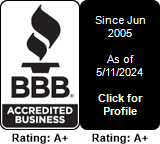
Not all fires are avoidable – but many house fires can be prevented, or mitigated, by performing small household chores and maintenance. While we don’t necessarily think about house fires as much in the summer, it’s important to stay vigilant with fire prevention all year round. Here is a short round up of just some of the things you can do any time of year to help with fire prevention.
- Smoke Alarms. We all know we should check our smoke alarms regularly. Make sure they are in good working order and replace the batteries twice a year. Similarly, if you keep a fire extinguisher in your home, check the expiry date and make sure it’s still good.
- Electrical Overload. Try not to overload electrical circuits. Modern life demands we use a lot of electricity and it can be tempting to overuse power bars and extension cords to get everything powered up. Make room in your outlets by unplugging chargers that aren’t in use (and save a little electricity too.).
- Dryer Lint. Don’t forget your lint catch! Dryer and dryer vent fires are common, and they are usually caused by a build up of lint in the vent. You can prevent this by emptying your dryer lint catch after each load of laundry and by getting routine dryer vent maintenance.
- Outdoor Risks. Be aware of what risks your outdoor area may present. Grass that is overgrown, and piles of dry, dead flowers or leaves can be culprits of a fire that can spread to your home. Identify and these areas and make plans for regular cleanup and maintenance of these areas to prevent disaster.
- Kitchen Safety. Keep an eye on your dinner. Stepping away from your cooking can end in tears, so be vigilant and make sure you turn off all stove elements and the oven when you are done. It’s also helpful to be sure you are using the correct tools for cooking (ie: a proper deep fryer vs open oil that may be spill causing an oil fire). It’s important to note that the number one cause of house fires is unattended cooking.
- Open Flames. Seems obvious but monitoring open flames such as candles, tiki or insect repellent torches, outdoor firepits and cigarettes is essential to fire safety. Do not leave candles or firepits unattended and don’t smoke on soft surfaces (couch, bed) if you are likely to fall asleep.
- BBQs. Keep your grill at least 10 feet away from your house, outbuildings, overhangs and decorations. Make sure to clean it regularly. Grease is a major source of flare ups, and letting it build up increases your chances of disaster. Keep a spray bottle of water handy to spray down minor flare ups without ruining your meal.
Some of these suggestions may already be second nature to you but consider the ones that you found novel. Many house fires could have been prevented by performing these acts of maintenance, and we hope they help keep your home safe and fire-free.
In the event that you experience a home fire, our expert team is here to help you and your family get back home and back to normal as quickly and efficiently as possible.

